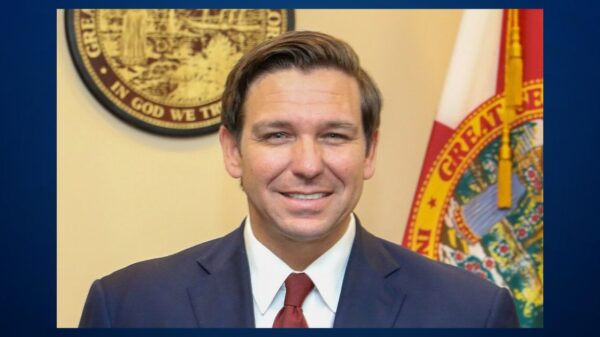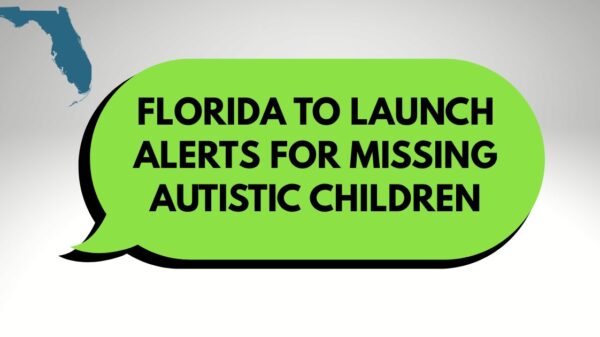On Monday, the Florida Department of Law Enforcement (FDLE) completed a three-year project to process older sexual assault kits submitted by local law enforcement agencies to FDLE labs following a 2016 Sexual Assault Kit Assessment.
In total, 8,023 sexual assault kits were processed resulting in 1,814 CODIS (Combined DNA Index System) hits. CODIS enables federal, state and local agencies to compare DNA profiles electronically, linking crimes to each other and known offenders.
“Ensuring that law enforcement has the appropriate tools to properly process sexual assault kits in a timely manner is important in helping solve crimes in Florida,” said Gov. Ron DeSantis on Monday. “Victims deserve our support, and they should know that under my administration justice will prevail.”
“This is an extraordinary accomplishment and I am grateful to FDLE and all our law enforcement partners who worked diligently to eliminate the backlog of previously untested sexual assault kits,” said Florida Attorney General Ashley Moody. “Not only was the backlog eliminated, procedures were adopted and advances made in an effort to prevent future backlogs.”
“I applaud Commissioner Swearingen and his team at FDLE for completing this important project and implementing process improvements to ensure sexual assault kits are processed timely and efficiently,” said state CFO Jimmy Patronis. “This DNA data is a vital tool used by our dedicated law enforcement personnel to ensure perpetrators of sexual assault are apprehended, held accountable and victims receive the justice they deserve.”
“DNA evidence is critical to solving sexual assault crimes,” said Florida Agriculture Commissioner Nikki Fried. “Thanks to the dedicated professionals at FDLE, Florida has taken a leap forward in securing justice, helping victims to heal, and holding perpetrators accountable for their despicable actions. Today, a clear message has been sent that time may pass, but justice will be served.”
“I am proud of our FDLE scientists and law enforcement partners who worked diligently on this project ensuring older sexual assault kits were processed and the results entered into the DNA database,” said FDLE Commissioner Rick Swearingen. “The more information we have and can share, the stronger the possibility of solving these crimes.”
“We are in the law enforcement business to protect citizens and enforce the law. Today, the Sheriffs of Florida applaud the efforts of FDLE’s scientists and our fellow law enforcement partners,” said Pinellas County Sheriff Bob Gualtieri, the president of the Florida Sheriffs Association. “Now that the DNA database has been updated with over 8,000 sexual assault kits, we look forward to solving these crimes and delivering swift justice.”
“I am very pleased with the work that has been conducted by local law enforcement and FDLE on submitting and processing older sexual assault kits,” said Temple Terrace Police Chief Kenneth Albano, the president of the Florida Police Chiefs Association. “Our Police Chiefs consider sexual assault as one of the most heinous crimes that can be perpetrated on an individual. We are committed to projects like this, that assist us in getting dangerous and violent criminals off our streets.”
“Victims of sexual assault who choose to get a forensic exam not only want justice for themselves, they want to ensure that their assailant isn’t going to remain free to assault someone else,” said Florida Council Against Sexual Violence Executive Director Jennifer Dritt. “FDLE’s processing of more than 8,000 previously unsubmitted rape kits in three years is remarkable, and gives hope to victims of a crime that has made their bodies evidence.”
“I am extremely proud of our work to ensure that the State of Florida put an end to the sexual assault kit backlog,” said state Sen. Lizbeth Benacquisto, R-Fort Myers. “During the last three years over 8,000 previously untested rape kits were tested across the state. The results of many of those tests could lead to justice for attackers and closure for victims. We have also seen over the last three years that based on the clearance of the backlog that multiple cold case arrests have been made. I thank the FDLE for their hard work to ensure this project was carried out and that new kits are tested within 120 days of being submitted. Victims no longer have to fear that their rape kit will sit on a shelf while their attacker walks the street.”
Local law enforcement agencies submitted these sexual assault kits starting in 2015 through June 2019. Not all local law enforcement agencies submit their evidence to FDLE labs. Some Florida agencies use private labs or have their own lab systems.




















